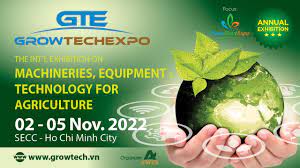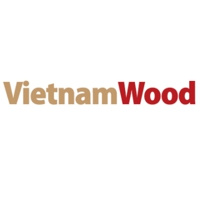- Read all
- Rice
- Fisheries
- Cassava
- Fertilizer & Pesticide
- Coffee
- Animal Feed
- Cocoa
- Seed
- Tea
- Wood
- Pepper
- Agricultural Cooperations
- Cashew
- Agricultural Investments
- Rubber
- Governmental Policies
- Sugarcane
- Agricultural Startup Ecosystem
- Corn
- Technological Innovations
- Spices
- Organic Agriculture
- Bean
- Food Manufacturing
- Fruit & Vegetable
- Agricultural Value Chain
- Flower
- Water & Waste Management
- Meat
- Processed Food
- Dairy
- Plant Originated Products
- General Agro Commodities
- Animal Originated Products
Vietnam can become the center of packaged food and beverage production for the whole world
June 22, 2022
Nestlé Group officially returned to Vietnam with the establishment of Nestlé Vietnam Company in 1995 and continuously expanded investment and diversified products. Up to now, Nestlé's total investment capital in Vietnam has reached 730 million USD.
Every year, Nestlé accompanies Vietnamese coffee farmers to practice sustainable farming and bring into the rural economy $700 million through sustainable coffee purchasing.
We are proud to be one of the pioneering foreign direct investment (FDI) enterprises contributing to the sustainable and inclusive growth of Vietnam.
All Nestlé activities work closely with partners in Vietnam to "create common value", which is to contribute to the common development of society while ensuring long-term success in business. Those goals, if they are to be sustainable, must be linked with a vision into the future. Moreover, besides sustainable development, we can also intervene to regenerate ecosystems, thereby maintaining the self-healing and regenerative capacity of nature, contributing to efforts to combat climate change. and conserve resources for the future.

Nestlé Vietnam General Director, Mr. Binu Jacob.
From 2020, Nestlé's sustainable development strategy towards a holistic approach, focusing on the goals of regeneration and "regeneration" for the natural ecosystem. In order to join hands to respond to climate change, Nestlé Group has developed a roadmap to reduce carbon emissions in stages, towards the goal of net zero emissions by 2050, through reducing carbon emissions throughout the world. operations and supply chains.
In Vietnam, Nestlé pioneers activities towards a regenerative agriculture through the NESCAFÉ Plan. Since its launch in 2011, NESCAFÉ Plan has distributed more than 53 million high-yielding, drought-resistant coffee seedlings to farmers and rehabilitated 53,000 hectares of coffee acreage in the Central Highlands.
In addition, the project also organized more than 300,000 training courses on sustainable coffee farming techniques for 300,000 farmers, helping 21,000 farmers achieve 4C international coffee certification.
Through the NESCAFÉ Plan, our agricultural engineers have collaborated with domestic and foreign scientific organizations and agricultural experts to carry out the following specific actions.
Protecting soil health and color: Regenerative farming practices contribute to soil protection by reducing the amount of inorganic fertilizers, increasing the use of organic fertilizers and composting from coffee husks and by-products. harvest. By applying this farming method, farmers can reduce about 20-30% of inorganic fertilizers, improving fertility and soil health.
Protecting groundwater resources: Regenerative farming methods help protect increasingly scarce groundwater resources. The NESCAFÉ Plan project has introduced water-saving irrigation techniques including drip irrigation, sprinkler irrigation or using a simple, easy to find and inexpensive tool such as a cow's milk can or plastic water bottle to measure the water level. moisture in the soil. These measures help farmers save up to 40%-60% of water to irrigate coffee trees compared to before.
Protecting biodiversity: Nestlé Vietnam builds regenerative agriculture with a reasonable intercropping model, such as growing pepper with coffee. In particular, pepper trees are both shade trees and windbreaks, so if only 30% of pepper trees are intercropped on a coffee garden, the amount of carbon absorbed into the soil will be higher than the emission. In addition, shade trees act as windbreaks in the dry season, helping to improve ecological conditions and reduce temperature and evaporation in the orchard. Pepper is also a nitrogen-fixing plant that improves soil structure and adds nutrients to the whole plant.
Cooperating with the Central Highlands Agro-Forestry Science and Technology Institute to produce new high-yielding, pest- and drought-resistant coffee varieties to distribute to farmers. The new coffee variety reduces the amount of water used for irrigation and improves the quality of the beans significantly compared to the old varieties. The use of healthy, disease-free coffee varieties combined with a reasonable intercropping model contributes to improving farmers' incomes as well as ensuring a supply of good quality coffee for Nestlé Vietnam's factories.
Maintain training programs to update the latest knowledge on advanced coffee farming methods in Vietnam and around the world. In particular, the company prioritizes the management of regenerative agriculture with digital tools such as FARMS and Digital Farmer's Diary, in order to provide knowledge about entrepreneurship to farmers. As a result, farmers can be proactive in household economic management while Nestlé has quick data in microeconomic management.
Reducing greenhouse gas emissions in coffee farming: We work with international organizations to inventory greenhouse gas emissions in coffee farming and aim to reduce the rate of emissions in coffee farming to levels The lowest possible. All of the above activities are aimed at contributing towards the goal of net zero emissions in agriculture.
I think the Government, MARD and localities in Vietnam are increasingly interested in sustainable agriculture and responsibly produced agricultural products. This is a very encouraging thing and also the right development direction. To promote green, sustainable and responsible agricultural models, we need to start with the basics. That is changing farming thinking, farming habits, organization and support mechanisms.

Farmers participate in NESCAFE Plan.
This is just as important as being aware of how climate change affects food security and farmers' livelihoods. We know that agricultural production activities contribute a part to the generation of greenhouse gas emissions and that it is outdated farming habits, and overuse of fertilizers, pesticides, chemicals, and chemicals. affecting the ecological environment, human health, and the quality of agricultural products.
Therefore, there is a need for policies to support and encourage more and more farmers and communities to transition from less sustainable production methods to more modern and sustainable production methods, while helping to conserve and restore and regenerate the land and the ecosystems associated with it.
Management agencies need to perfect the mechanism and application of biological pesticides, and apply digital transformation in the management of effective, safe, and responsible pesticide use manuals. , strengthen public-private cooperation in production, replicate farming models to reduce production costs but still ensure productivity and quality of agricultural products, and promote the reorganization of sectors in agricultural production. Karma. At Nestlé, we are ready to work with our partners to realize these goals toward a green and regenerative agriculture.
With a long-term commitment, we have been working closely with coffee farmers for over 11 years. We continue to support farmers in the Central Highlands with more sustainable farming knowledge, improve the quality of Vietnamese coffee beans, and promote regenerative agriculture through the NESCAFÉ Plan.
In processing activities, we continue to expand investment, doubling the processing capacity of high-quality coffee lines at Nestlé Tri An factory, aiming to turn the Vietnamese market into a production center. production and supply of high value coffee. This is Nestlé's large production plant in Vietnam and is also one of the largest and most modern coffee processing plants in the region of the Group. In addition to the goal of producing high-quality coffee products to serve the needs of Vietnamese consumers, the products produced at this factory are also exported to more than 25 countries including the fastidious markets in Vietnam. Europe, Japan, Korea, USA and Australia.
Equipped with advanced production lines, equipment, and technology, Nestlé Vietnam continues to aim to increase the value of Vietnamese agricultural products, especially coffee products, and at the same time increase the export of Vietnamese agricultural products. "Made in Vietnam" products to the world.
I believe that the Vietnamese market can completely become a production center for packaged food and beverage products for the whole world, thanks to a skilled workforce and high work ethic. In addition, Nestlé Vietnam's operating system is currently among the most efficient and flexible in all markets in which Nestlé is present.
Source: Thanh Son - nongnghiep.vn
Related news
-
ASEAN cooperates on digitalization in aid of rural development
In rural regions, digitalization and technological innovation present both benefits and obstacles.September 5, 2022 -
Newspaper print number 211, out today October 24, 2022
News of agriculture, farmers and rural areas featured in Vietnam Agriculture newspaper No. 211 today 24/10/2022.October 24, 2022 -
Farmers develop economic from a seedless fruit
Bao Lam seedless persimmon brings high economic efficiency to the people and is a famous specialty fruit with its distinctive flavor of Lang Son province.October 19, 2022 -
Heighten Vietnam - USA cooperation relationship through agriculture
(VAN) Through 8 proposals to the new US Agricultural Counselor, Deputy Minister Nguyen Hoang Hiep hoped that trade between the two countries would soon regain its growth momentum.November 23, 2022
Events See more

Vietnamplas 2022 - Vietnam International Plastic and Rubber Industry Exhibition
23-03-2023 - 26-11-2022 09:00 - 17:00
Saigon Exhibition and Convention Center (SECC) – 799 Nguyen Van Linh Boulevard, District 7, City. Ho Chi Minh.

GROWTECH EXPO - FLORAPLANTEXPO 2021
02 - 05-11-2022 09:00 - 17:00
Saigon Exhibition and Convention Center (SECC) – 799 Nguyen Van Linh Boulevard, District 7, City. Ho Chi Minh.

VTG 2022
18 - 25-10-2022 09:00 - 17:00
Saigon Exhibition and Convention Center (SECC) – 799 Nguyen Van Linh Boulevard, District 7, City. Ho Chi Minh.

VIETSTOCK 2022 - SPECIALISED EXHIBITION OF LIVESTOCK, FEED AND MEAT PROCESSING IN VIETNAM
12 - 14-10-2022 08:00 - 17:00
799 Nguyen Van Linh, Tan Phu Ward, Dist. 7, Hochiminh City, Vietnam

VTG 2022
21 - 27-09-2022 09:00 - 17:00
Saigon Exhibition and Convention Center (SECC) – 799 Nguyen Van Linh Boulevard, District 7, City. Ho Chi Minh.
.png)
VIETFISH 2022
22 - 26-08-2022 09:00 - 17:00
Saigon Exhibition and Convention Center (SECC) – 799 Nguyen Van Linh Boulevard, District 7, City. Ho Chi Minh.
Business Opportunities See more
-
BURANI INTERFOOD is looking for Buyers in Vietnam
Type:
November 22, 2021
-
BURANI INTERFOOD is looking for Buyers in Vietnam
Type: Wholesaling Meat
November 22, 2021
-
BURANI INTERFOOD is looking for Buyers in Vietnam
Type: Wholesaling Meat
November 22, 2021
-
BURANI INTERFOOD is looking for Buyers in Vietnam
Type: Wholesaling Meat
November 19, 2021
-
BURANI INTERFOOD is looking for Buyers in Vietnam
Type:
November 19, 2021
-
Indian purchaser looking for high quality cashew nut kernel from Vietnam
Type: Exporting Cashew
Mar 14, 2016
534
Limitless database of qualified and verified agricultural partners
124
Exclusive buy & sell leads on specific agricultural commodities
24
Agricultural events in Vietnam and Asia Pacific region
Stay informed!
Enter your email address below to receive updates each time we publishes new content
